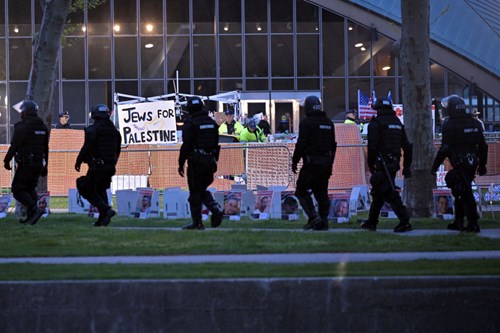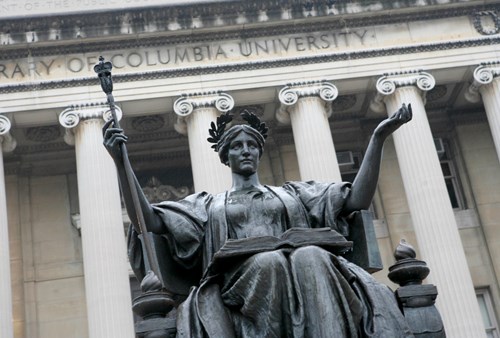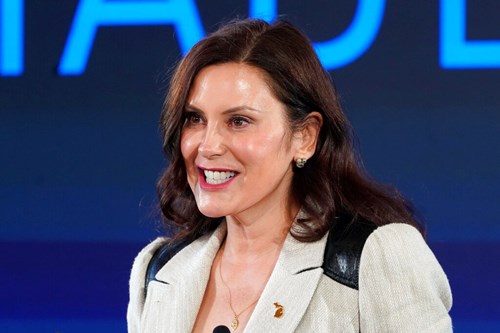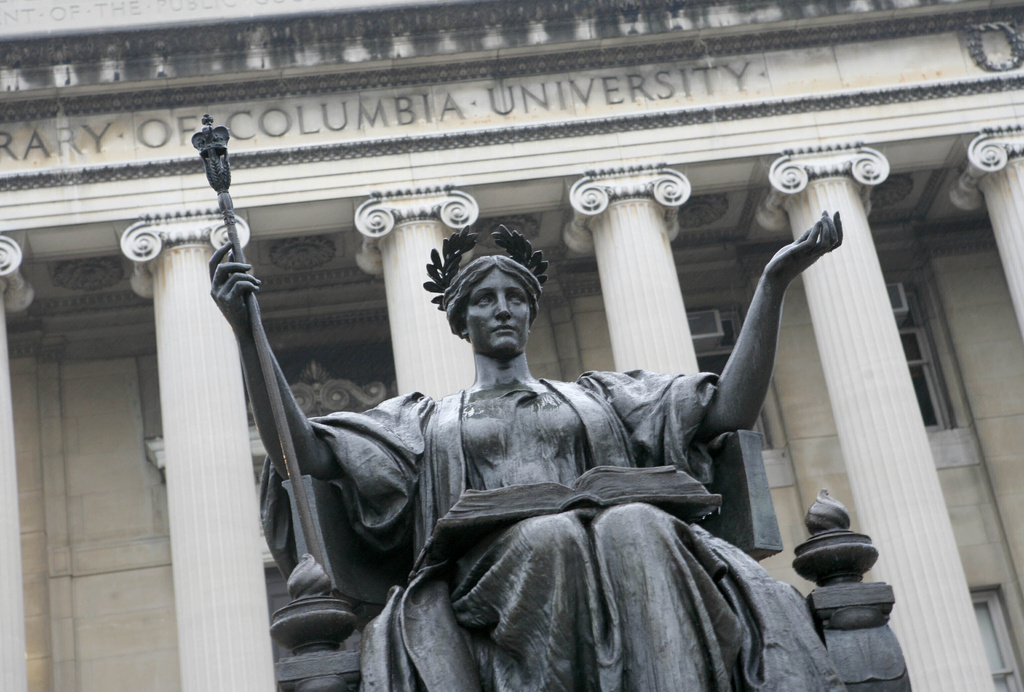Anti-Israel activists have caused disruption at campuses in the Midwest and on the East Coast in recent days.
At the University of Michigan, activists spray painted the homes of two faculty leaders.
It's also reported they vandalized buildings of several organizations that have ties to Israel.
At Tufts University in Medford, Massachusetts near Boston, the Students for Justice in Palestine chapter had been suspended for multiple violations of university policy, but university leaders didn’t stop the group from staging a protest inside a campus building.
The protest was not violent like some of those from last spring.
Dr. Zachary Marschall, Editor in Chief of Campus Reform, tells AFN that occupy is technically correct.
"I think just to be clear for like a national audience, we would describe this as a sit-in because they are occupying a space, but they're taking up that space in order to make their message known. This is not what we saw in Colombia where they tried to take control over an entire building and inflict bodily harm to do so."

He said these students want to find where they fit in, but he agreed they are clearly looking in the wrong places.
"They're trying to get attention. These are students who are lost in their lives, and they don't really have anything going for them, to be honest. They are trying to find a cause to latch on to. So what we're seeing here is students trying to find some relevance for themselves in the world, and in doing so, they are promoting and supporting terrorism,” Marschall said.
Words matter, and people need to pay attention to the chants and phrases of student protesters, he said.
Hate speech is hate speech
It’s wrong for protesters to get a pass, so to speak, because they are students expressing opinions on a college campus.
“What people need to absolutely recognize and understand is that when people say, 'glory to the martyrs,’ they are sanctioning and endorsing terrorists. It's no different than someone saying 'praise Al Qaeda' on Sept. 12, 2001. So, I don't understand why this is somehow considered more dignified or more acceptable than any other form of support for terrorist organizations in the past,” Marschall said.
At Michigan, pictures show the vandalism of private homes included phrases like "FREE PALESTINE" and "COWARD" painted across doors and what appears to be a garage door.  Marschall said his team received a tip about the vandalism.
Marschall said his team received a tip about the vandalism.
To his knowledge, spray paint was the extent of what the vandals used in this case. There appears to be no other physical damage to structures.
There are also no consequences for the actions, so far.
“Usually from our experience tracking these things, that takes a while for the consequences, if there are any, to get out because if the cops are called, or if there are internal disciplinary measures, those are usually -- that information is taken privately, so it's not a matter of public record."
He said he expects it will take a few weeks or a few months, as is usually the case, for the details to emerge about activities like this.
Right now there’s an ongoing "week of rage," a national campaign called for by Students for Justice in Palestine to protest against Israel.
"It's the week of repeats. Right now, I think one encouraging sign in all of this is that the groups seem less organized than they were in the Spring, and it seems to be under activities that are more normal in the sense that we're not seeing tent encampments.”
Currently, the protests are much more mundane, Marschall says.
“We're not seeing unprecedented styles of activism. We're just seeing people marching and yelling very stupid things, which while still despicable, is a sign of improvement from where we were back in April, so I'm encouraged that we were able to get to this point. I hope we will soon see, as time goes on, the anti-Israel, anti-Semitic protests eventually evaporate from college campuses."
The predictable trouble spot
While this may appear to be a positive step, Marschall said there have still been incidents, particularly at the University of Michigan, which he said seems to be the most troublesome university at the moment.
 The state of Michigan has an estimated Muslim population of 241,828 according to a 2024 study.
The state of Michigan has an estimated Muslim population of 241,828 according to a 2024 study.
There are pockets of high concentration.
More than 40% of the residents of Hamtramck, an area of Detroit, are foreign-born including many from Yemen.
Dearborn, another Michigan city, has a proportionally large Muslim population including the largest mosque in North America.
"We saw three attacks on Jewish students in September, and then a Rabbi and a group of Jewish students there were held at gunpoint over Rosh Hashanah, so there's a lot of antisemitic sentiment and anti-Jewish hatred in the state of Michigan," Marschall said.














